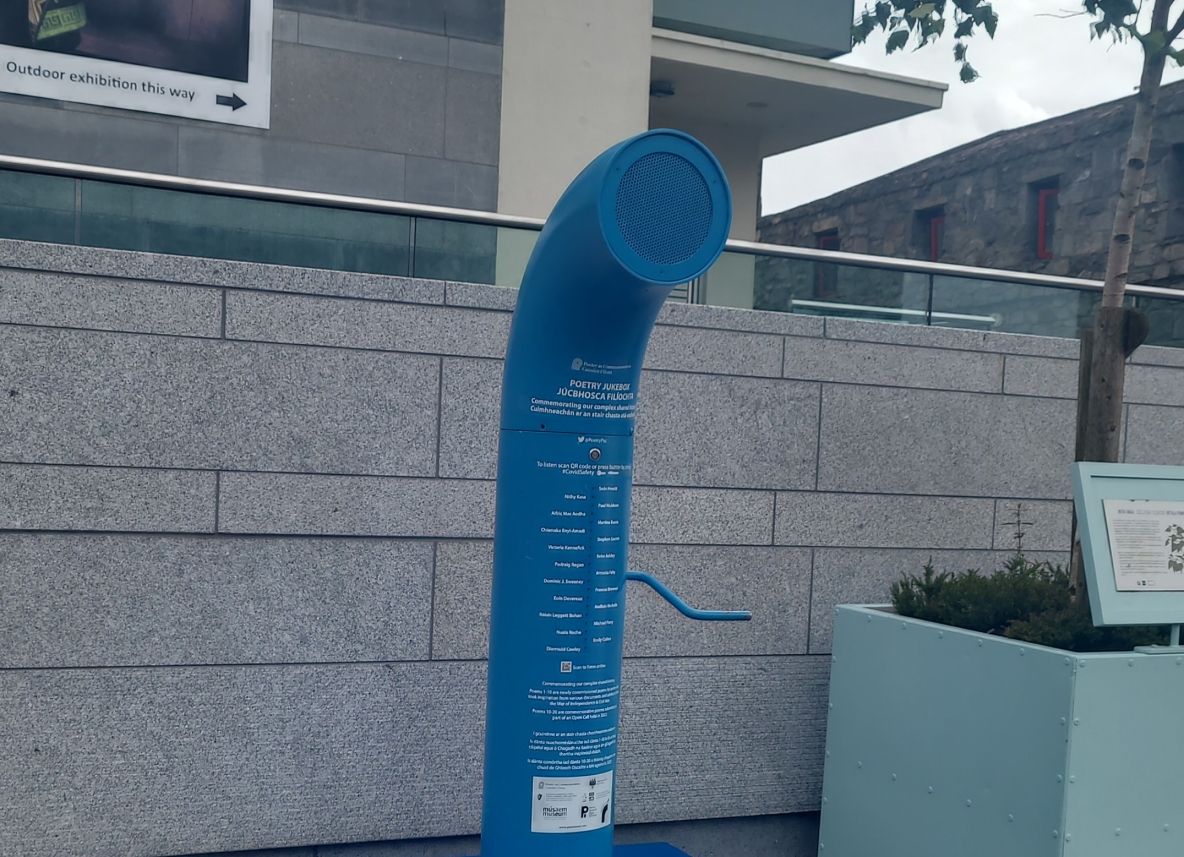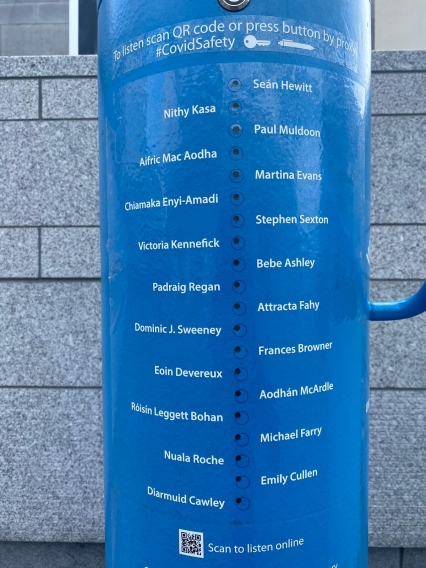
A new Decade of Centenaries ‘Poetry Jukebox’ located in Galway features poems by two University of Limerick writers.
The free sound installation is currently located in front of Galway City Museum near the Spanish Arch.
It features work by two University of Limerick writers - Professor Eoin Devereux and Dr Emily Cullen.
Both Emily Cullen and Eoin Devereux teach on the prestigious MA in Creative Writing at UL alongside colleagues Joseph O'Connor, Sarah Moore, Donal Ryan and Fi Scarlett.
The Acting Course Director of the MA in Creative Writing at UL, Professor Sarah Moore said: “UL’s Emily Cullen and Eoin Devereux are poets whose writing is recognised among Ireland’s leading creative voices. That their recent work is being showcased in such an innovative way as part of Galway’s poetry jukebox initiative is yet another hallmark of the value and impact of their contribution.”
For the next twelve weeks, visitors can wind the handle of the jukebox to hear poetic reflections on a range of historic events including the 1916 Rising (from the perspective of a bicycle), the 1921 truce, and the battle at the Four Courts in June 1922.
The Poetry Jukebox was installed as part of Poetry as Commemoration, an initiative led by UCD Library with support from the Department of Tourism, Culture, Arts, Gaeltacht, Sport and Media under the Decade of Centenaries Programme 2012-2023.
Since January 2022, this all-island project, delivered in partnership with Poetry Ireland and Arts Council Northern Ireland, has encouraged citizens to use poetry to explore the challenging period in our history spanning the War of Independence, 1919 to 1921, the Civil War and its aftermath.
The jukebox features a poem commissioned by Galway Public Libraries as part of the Decade of Centenaries programme.
UL Poet in Residence, Emily Cullen’s ‘Bridget’s Hope’ transports the listener to Athenry on the 12th of July 1921, the day after the truce:
I wake to a sweep of swallows
the light falling slant against walls,
a new word truce on my tongue.
It has seeped into my deepest sleep
I’m trying to make sense of the term.
Truce? Does this mean we nearly won?
What would Pearse tell us now?
What would Connolly command?
No more curfews or armoured lorries,
we’re free to walk the streets at night
free to fly the tricolour again
to sing the Soldier’s Song.
Eoin Devereux’s ‘Revolutions’ relates the story of the 1916 Revolution in Enniscorthy, County Wexford. His poem is told from the perspective of a bicycle:
In April 1916
I played my part,
in the four-day revolution,
ferrying grub to the Atheneum,
carrying ammunition to the men
who took over Dodo Roche’s Castle,
and the stumpy windmill on Vinegar Hill.
I escorted my young owner to patrol
Scarrawalsh, Ferns, Oylegate, Ballycarney,
And with word of surrender,
Back to his home in Irish Street,
Enniscorthy.
